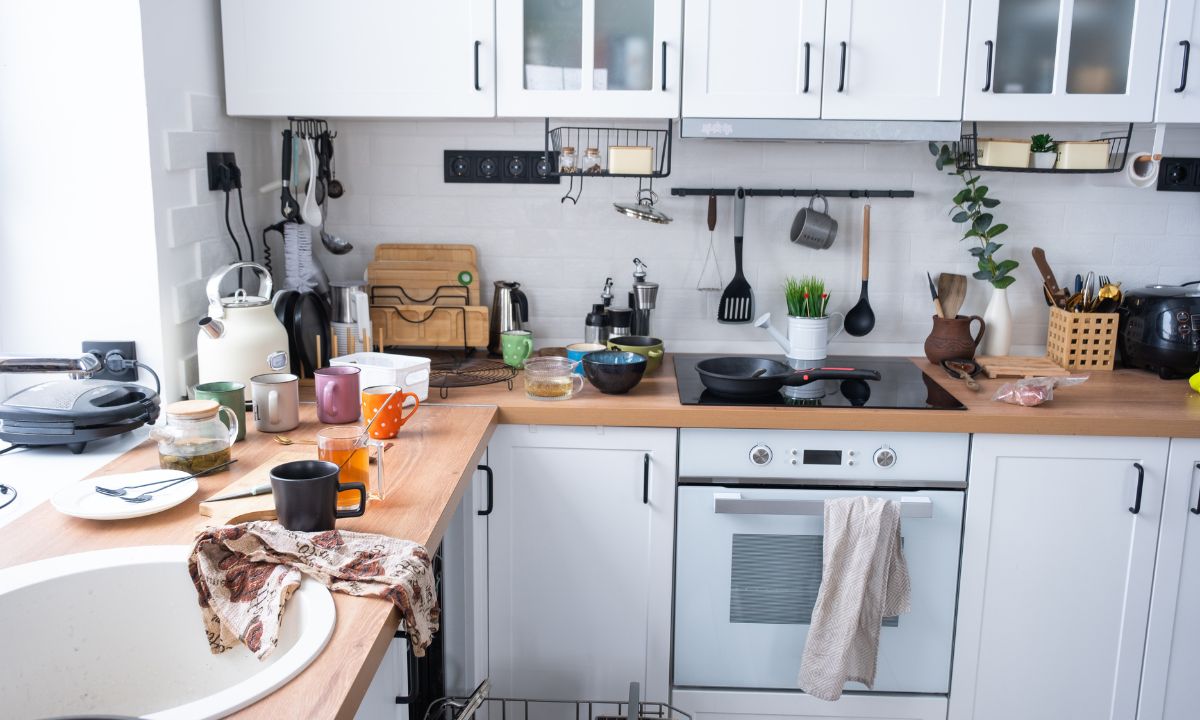 When it comes to selling your home, one of the biggest hurdles many people face is clutter. After years of living in the same space, it’s easy to accumulate items that hold sentimental value, making it challenging to let go. However, clutter can significantly impact how potential buyers perceive your home, even if you don’t realize it. Here’s how to tackle clutter in various areas of your home to create a welcoming environment that attracts buyers.
When it comes to selling your home, one of the biggest hurdles many people face is clutter. After years of living in the same space, it’s easy to accumulate items that hold sentimental value, making it challenging to let go. However, clutter can significantly impact how potential buyers perceive your home, even if you don’t realize it. Here’s how to tackle clutter in various areas of your home to create a welcoming environment that attracts buyers.
The Emotional Attachment to Clutter
It’s common for homeowners to feel emotionally attached to their belongings, making it hard to view their space objectively. To combat this, take a step back and try to see your home through the eyes of a potential buyer. Consider asking a friend for input on areas that may need decluttering, as long as you can accept their feedback constructively. Your real estate agent can also provide valuable insights to help you see the bigger picture.
Start with the Kitchen
The kitchen is often the heart of the home, and it’s a great place to begin decluttering. Start by clearing off all countertops—yes, even the toaster! Store appliances and utensils in cabinets and drawers. If you find your cabinets overflowing, it’s time to clean them out. Pack away rarely used items and consider placing them in storage.
Homebuyers will open cabinets and drawers, so if they’re crammed with items, it sends a negative message about your home’s storage capacity. Aim for empty space to create a sense of roominess. Don’t forget about the pantry; clear out any excess food, especially heavy canned goods. Not only will this lighten your load for the move, but it also makes the pantry look more spacious.
Tackle Closet Clutter
Closets are notorious for accumulating clutter, often filled with clothes and shoes that you rarely wear but can’t bear to part with. To enhance the appearance of your closets, consider boxing up items you don’t use frequently. This will create an impression of space and organization.
Additionally, clear out shoe boxes filled with miscellaneous items. A well-organized closet can be a major selling point, as buyers will want to visualize their own belongings in the space.
Address Furniture Clutter
Having too much furniture can make rooms feel cramped, which can deter potential buyers. Take a look around your home and assess whether any pieces can be removed to create a more open feel. Visiting model homes can provide inspiration on how to arrange furniture effectively to showcase the space. Aim for a layout that highlights the room’s best features while allowing buyers to envision their own lifestyle in your home.
Declutter Storage Areas
Basements, garages, attics, and sheds often become dumping grounds for items that you no longer use or need. Clear out these areas to allow buyers to imagine how they could utilize the space. Remove anything non-essential and consider storing items, holding a garage sale, or donating them. An empty, organized storage area is far more appealing and offers potential buyers flexibility for their own use.
While decluttering may seem daunting, it’s a crucial step in preparing your home for sale. By viewing your space from a buyer’s perspective and taking the time to create clear, open areas, you can enhance your home’s appeal. This process not only benefits your home sale but can also lead to a more enjoyable living experience in the meantime. If you have any questions or need support during this process, I’m here to help!
 Selling your home can be both exciting and overwhelming. The goal is often to sell quickly and for the best possible price. Here are some important tips to help you achieve a quick and profitable sale.
Selling your home can be both exciting and overwhelming. The goal is often to sell quickly and for the best possible price. Here are some important tips to help you achieve a quick and profitable sale. Congratulations! You’ve received and accepted an offer on your home. This is a major milestone, but it’s not the end of the journey. Several steps and processes follow the acceptance of an offer, and understanding what to expect can help you navigate this phase smoothly. Here’s a detailed look at what comes next:
Congratulations! You’ve received and accepted an offer on your home. This is a major milestone, but it’s not the end of the journey. Several steps and processes follow the acceptance of an offer, and understanding what to expect can help you navigate this phase smoothly. Here’s a detailed look at what comes next: Deciding when to sell your home can be a daunting task. The housing market is unpredictable, and personal circumstances can add layers of complexity to the decision. If you’re contemplating selling your home but aren’t sure if the timing is right, here are some signs to help guide your decision.
Deciding when to sell your home can be a daunting task. The housing market is unpredictable, and personal circumstances can add layers of complexity to the decision. If you’re contemplating selling your home but aren’t sure if the timing is right, here are some signs to help guide your decision.
